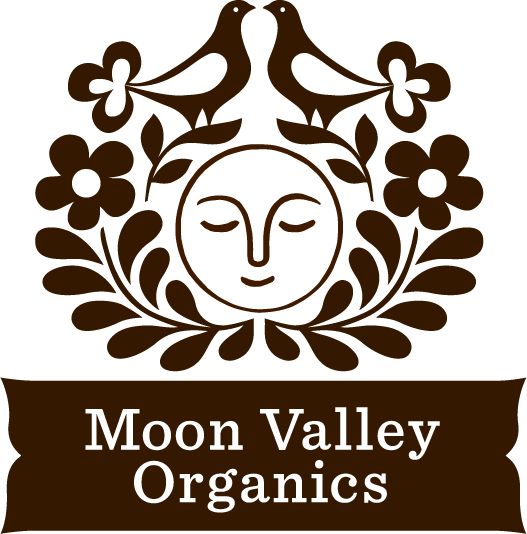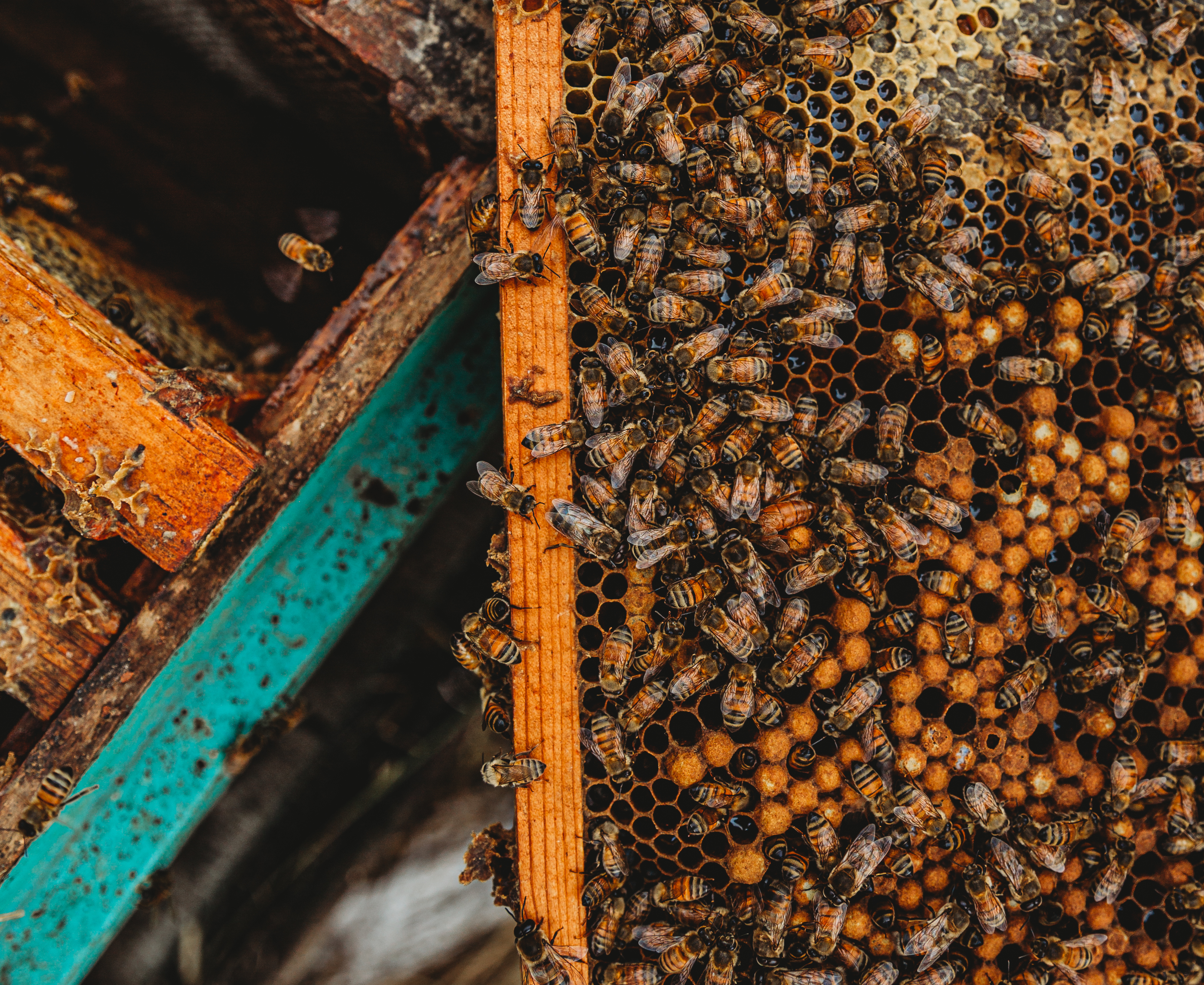Collapsible content
Our Mission
Our mission is simple; expand pollinator habitat and work towards a pesticide-free future.
Moon Valley Organics goal is to support organic farms and the people who farm on them by providing a source for high quality, organic personal care products that promote a healthy way of caring for our bodies and the world. We are committed to self-sustaining and eco-friendly lifestyle and we carry that belief into our business practices.
We uphold the highest organic standards in formulating our products to help pollinators like bees, butterflies, and hummingbirds thrive.
In the communities where our products are sold, our focus is on expanding pollinator habitats and advocating for a pesticide-free future through hands-on education, grassroots activism, and financial support.
Grown, Not Made
At Moon Valley Organics, "Grown, Not Made" embodies nature’s wisdom in simplicity. We use organically grown ingredients and strive for plant-based packaging. We nurture pollinator habitats and support organic-regenerative farming. Embracing the beauty of the natural world, we focus on what matters. Aiming for a sustainable future, we care for all living things.
how we make our products matter
Sustainability
Organic Principles
The Four Principles
The Principles are composed as inter-connected ethical principles to inspire the organic movement in its full diversity, and they guide our development of positions, programs and standards. There are translations available in many languages, which can be found here.
1. Principle of Health
Organic Agriculture should sustain and enhance the health of soil, plant, animal, human and planet as one and indivisible. This principle points out that the health of individuals and communities cannot be separated from the health of ecosystems – healthy soils produce healthy crops that foster the health of animals and people.
Health is the wholeness and integrity of living systems. It is not simply the absence of illness, but the maintenance of physical, mental, social and ecological well-being. Immunity, resilience and regeneration are key characteristics of health. The role of Organic Agriculture, whether in farming, processing, distribution, or consumption, is to sustain and enhance the health of ecosystems and organisms from the smallest in the soil to human beings. In particular, organic agriculture is intended to produce high quality, nutritious food that contributes to preventive health care and well-being. In view of this it should avoid the use of fertilizers, pesticides, animal drugs and food additives that may have adverse health effects.
2. Principle of Ecology
Organic Agriculture should be based on living ecological systems and cycles, work with them, emulate them and help sustain them.
This principle roots Organic Agriculture within living ecological systems. It states that production is to be based on ecological processes, and recycling. Nourishment and well-being are achieved through the ecology of the specific production environment. For example, in the case of crops this is the living soil; for animals it is the farm ecosystem; for fish and marine organisms, the aquatic environment.
Organic farming, pastoral and wild harvest systems should fit the cycles and ecological balances in nature. These cycles are universal but their operation is site-specific. Organic management must be adapted to local conditions, ecology, culture and scale. Inputs should be reduced by reuse, recycling and efficient management of materials and energy in order to maintain and improve environmental quality and conserve resources.
Organic Agriculture should attain ecological balance through the design of farming systems, establishment of habitats and maintenance of genetic and agricultural diversity. Those who produce, process, trade, or consume organic products should protect and benefit the common environment including landscapes, climate, habitats, biodiversity, air and water.
3. Principle of Fairness
Organic Agriculture should build on relationships that ensure fairness with regard to the common environment and life opportunities.
Fairness is characterized by equity, respect, justice and stewardship of the shared world, both among people and in their relations to other living beings.
This principle emphasizes that those involved in Organic Agriculture should conduct human relationships in a manner that ensures fairness at all levels and to all parties – farmers, workers, processors, distributors, traders and consumers. Organic Agriculture should provide everyone involved with a good quality of life, and contribute to food sovereignty and reduction of poverty. It aims to produce a sufficient supply of good quality food and other products. This principle insists that animals should be provided with the conditions and opportunities of life that accord with their physiology, natural behavior and well-being.
Natural and environmental resources that are used for production and consumption should be managed in a way that is socially and ecologically just and should be held in trust for future generations. Fairness requires systems of production, distribution and trade that are open and equitable and account for real environmental and social costs.
4. Principle of Care
Organic Agriculture should be managed in a precautionary and responsible manner to protect the health and well-being of current and future generations and the environment.
Organic Agriculture is a living and dynamic system that responds to internal and external demands and conditions. Practitioners of Organic Agriculture can enhance efficiency and increase productivity, but this should not be at the risk of jeopardizing health and well-being. Consequently, new technologies need to be assessed and existing methods reviewed. Given the incomplete understanding of ecosystems and agriculture, care must be taken.
This principle states that precaution and responsibility are the key concerns in management, development and technology choices in Organic Agriculture. Science is necessary to ensure that Organic Agriculture is healthy, safe and ecologically sound. However, scientific knowledge alone is not sufficient. Practical experience, accumulated wisdom and traditional and indigenous knowledge offer valid solutions, tested by time. Organic Agriculture should prevent significant risks by adopting appropriate technologies and rejecting unpredictable ones, such as genetic engineering. Decisions should reflect the values and needs of all who might be affected, through transparent and participatory processes.
Let's Create a Brighter Future
The more we all do, the greater the positive impact we will have.
You can start with 4 simple steps:
1. Plant a Pollinator Garden at home
2. Avoid Pesticides and Herbacides
3. Support Organic Farms and Products
4. Spread the word in your community
Good Resources
We trust these organizations because they are free from corporate influence and are serious about pollinator health.

